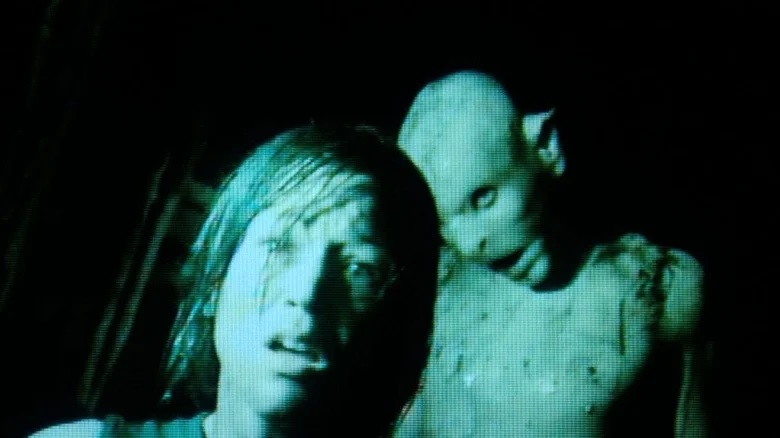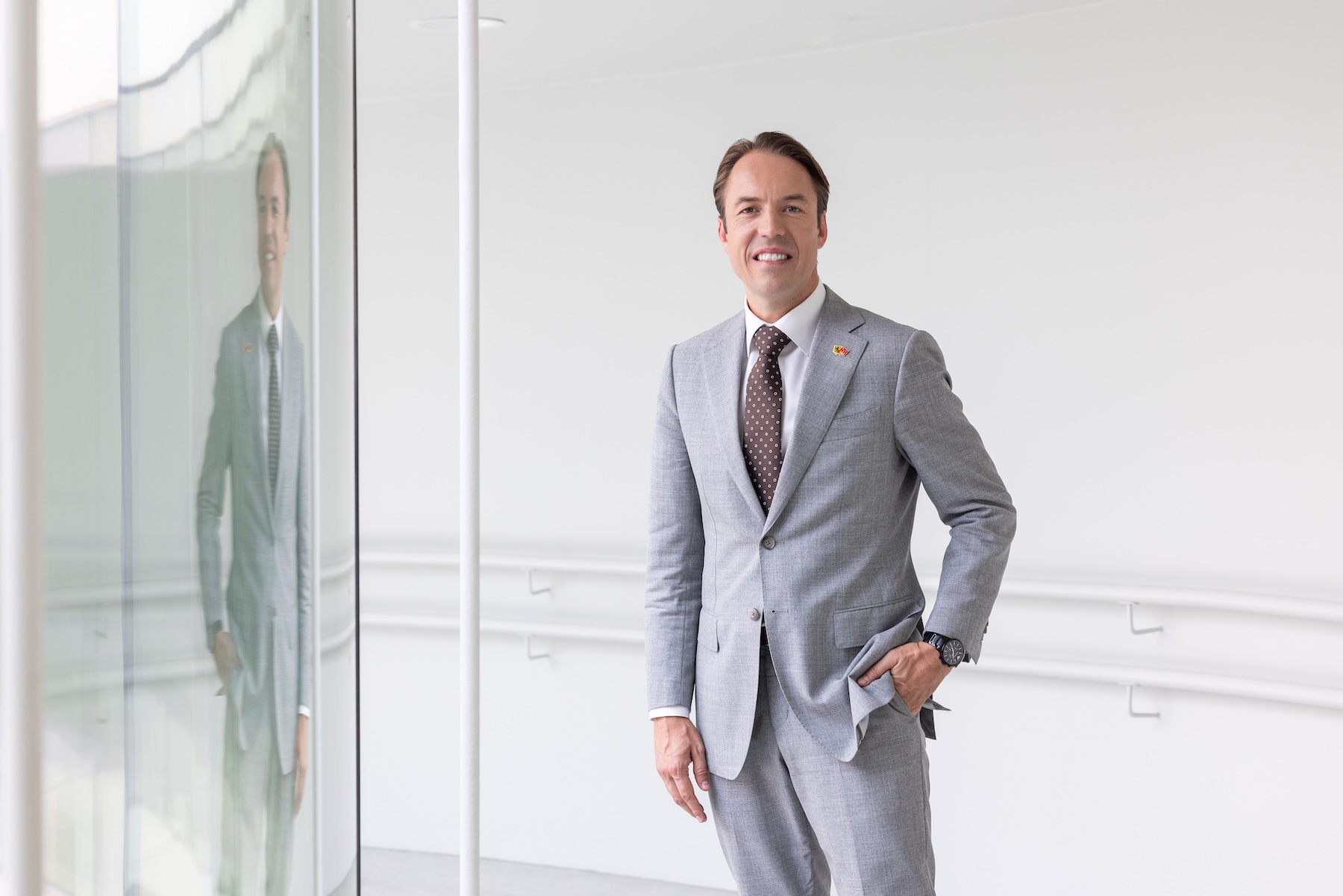By Emad El-Din Aysha, PhD
I’ve been planning to write about Youssef El Sherif’s Al-Nihaya (The End) since the holy month of Ramadan began but found it difficult to research and preferred to wait till the end before passing judgement on it. It is Egypt’s first ever sci-fi TV series and coming out in Ramadan no less, up against the entire entertainment industry in effect with its emphasis on comedy, action, melodrama and tacky stardom.
The series was a controversy from the word go. The thing that everybody caught onto, for and against, was that in this future world Palestine has been liberated in the year 2120. America fell apart into a civil war as individual states went independent, while the Arabs reunited, spelling the end of Israel once and for all. The story mostly takes place in Jerusalem, after all. The only catch is that this final military confrontation included nuclear warfare, leaving tremendous irradiated tracks of land and little urban enclaves up against deserts full of drug smugglers and gun runners. Arabic governments have fallen apart as well, leaving a handful of business monopolies running absolutely everything and providing security through mercenary outfits – Green Co in agriculture and food production, Edu Co in charge of education and Energy Co in charge of power. There’s no oil in this future world apparently and money has been replaced by ECs (energy cells) that are used to pay for things and power up machines. Education is also strictly controlled. Anyone caught providing private tuition is exiled to the radioactive zones and the kids parcelled off to the slave labour camps of Energy Co, if not shot on sight.
So much for the insatiable march of progress. The critics of this series, right and left, should have borne all this in mind before accusing the series of war-mongering or for the producers having the audacity to defy America and Israel, in their sleep. All the heroes are opposed to war, since victory was nothing but the taste of ashes in their mouth, with Arab unity not paying off in the end. There are lots of cheap shots here and there at the Palestinian cause if you know how to read the signals traffic. Still, it’s a good series over all and a model to emulate and encourage, breaking the mould of Egyptian and Arabic television once and opening up the possibility of tackling Israeli head on in works of Arabic science fiction. It’s main failing as a series sadly is that it was a bit too ambitious. You have end of the world scenarios, too many characters to keep the plot well rounded and some world-building problems that need sorting out.
The main strengths are how well written it all is and the really good acting and the morality debates interspersed along the way. But first some more story details. Downright convoluted details!
Eye of the Storm
The nominal hero of the story is Zain (Youssef El Sherif), an engineer with Energy Co who wants to break these monopolies once and for all. He’s invented his own brand of EC which powers itself directly from the sun and he moonlights as a teacher at an orphanage in defiance of the law. That’s when things begin to go wrong for him. The nominal cops are after him for his educational endeavours while a criminal gang of outcasts in the desert are after him for his new EC invention and, to make matters even worse, some mysterious external force kidnaps him and takes him to a hidden Utopian city simply known as Al-Wahah (the Oasis). Education is universal there and the powers that be are more than interested in his power innovations, promising him that they need the new ECs to power an electromagnetic shield to shelter them from an impending war with Energy Co. Or so they say.
What choice does he have but to join them? His wife Radwa (Nahed Elsebai) just gave birth and he needs the money, and the protection. And as if that isn’t problematic enough, a former flame of his named Sabah (Sahar El Sayegh) has her own plans. She’s an employee of his wife’s at Green Co and wants her old love back, but through a robotic lookalike she’s building, in a world where artificial intelligence and android robotics are strictly prohibited. This is the main parallel plot in the story and involves a rouge engineer Aziz (Amr Abdul Gelil) who agrees to help Sabah, as much as regrets it. He makes sure to programme the robot Zain to be obedient and minimise his self-awareness, lest he become rebellious like his robotic processors and go on a murderous rampage. This is where Youssef El Sherif really livens up the TV series. He’s a top notch actor and someone who is always introducing new things, motifs and plot twists and narrative techniques, into Egyptian drama and he excels as the nice guy robot Zain. He’s good as the human Zain but is not that differently than your average mild mannered Egyptian engineer. The robot Zain however is the new model husband, or househusband, obedient and considerate. When Radwa encounters him, thinking he’s the human Zain, she learns the hard way about the so-called second wife and she has to put up with his literal sense of humour and endless attempts to please her, and it’s hilarious!
The person who really stole the show however is Sahar El Sayegh. She’s playing someone that’s practically mentally deranged, and quite sadistic when it comes to Zain’s wife Radwa, the woman that stole him from her so to speak. When the robot Zain turns bad, hell bent on destroying the world to usher in a new era ruled by a robotic race, she goes along quite willingly. Second best in terms of performances is Amr Abdul Gelil. He’s the main source of comic relief and the conscience of the story. He’s more than the voice of reason but the voice of tradition up against a rampant modernity that has lost all its bearings. You then discover that he’s a robot himself but nonetheless someone who has learnt to dedicate his life to becoming human and defending if not almost triumphing in this flawed thing called humanity. It’s those flaws that make them perfect for this imperfect world, as he tells the robot Zain in the end. That’s probably why the character is called Aziz, from izza or dignity and pride, at being human and living up to tradition virtues like chivalry and generosity. In another scene he explains to a friend that what created this whole mess with the robot Zain was how somebody wanted something that was not rightful hers, something allotted to her by God through the natural course of things. (This friend, incidentally, finds out about the robot Zain and lies to Radwa about him to try and steal her for himself, and the poor darling, hurt over the supposed betrayal succumbs to a moment of annoying weakness). And it’s great to see that high calibre morality debates in science fiction can be said in Arabic so nicely and succinctly, much more so than in English in fact.
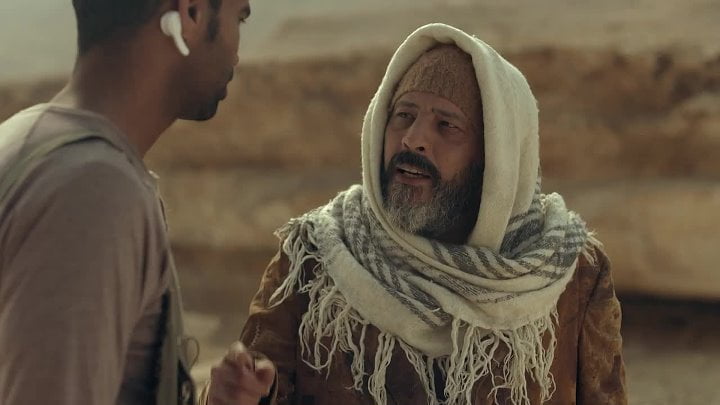
Return to Zain in the Oasis. He discovers that Energy Co is not their enemy at all and that the place is run by some sort of end-of-the-world cult worshiping some mysterious Mahdi saviour-like figure who is immortal and wants to rule the world by first destroying it. This is putting the onus a bit too much on Youssef El Sherif, especially in a science fiction series, but he’s doing this in the most professional, unegotistical way possible. In marked contrast to everyone else in Egyptian TV drama, and especially Ramadan drama. That by itself should get him an Oscar, for nobility of intent!
Practical Dystopias
Some more positive qualities here before I start picking things apart. The technology on display is very believable and well conceived, with see through three dimensional displays and touch sensitive electromagnetic fields, not to mention surveillance drones and thermal scanning and energy weapons and transparent mobiles phones and tablets. The construction of the future world, with half destroyed cities and mountainous terrain is also impressive and realistic. But there’s more here than meets the Western eye. Lots of things are lampooned that foreign readers and audiences might not catch onto. For instance, you have a shop that serves hybridised foods – duck mixed with chicken and other things. This is a tongue in cheek reference to all the new fruits and vegetables we suffer from here in Egypt, with things that have no distinct taste, and of questionable health value.
The monopolies on display are also very familiar fair in the Arab world – along with the hoarding and black markets that corrupt officials in these monopolies feed. The urban centres people live in are called ‘compounds’, another reference to the walled-in zones for the rich and famous, not unlike what you have in Ahmed Khaled Tawfik’s compound on the north coast in Utopia with its own mercenary army of Marines. The Oasis isn’t much different, in point of fact, with security restrictions on absolutely everything, determining where you can go at night and what you’re entitled to enjoy. Not to forget that everybody in this supposed utopia of the rich and powerful is on the take, from the lowly bartender to the security forces that can all be bribed to look the other way. Something I’ve never particularly liked about the dystopia tradition in Western SF is that the system is too perfect and the agencies or corporations are too monolithic. Here, in the Arab world, we have the advantage of actually living in real life dystopias and for most of our recorded history, so we know that there are squabbles within corporations as executives try and do their own business on the side, or corrupt security officials find ways to climb the bureaucratic ladder through kickbacks and detours and switching sides. Everybody’s got his own agenda and aren’t exactly governed by Masonic zeal, something the enigmatic bad guy in the background knows all too well. Those power centres are brutal but they aren’t terribly effective, and it’s their unaccountability specifically that leads them towards lethargy and corruption and working at cross purposes with each other.
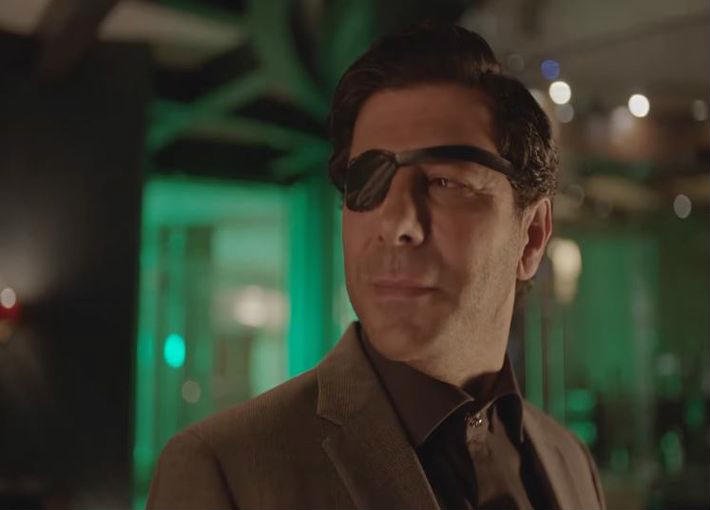
In the final episode, when war does come to Jerusalem, you find the cops vacating their positions, leaving both the public at the mercy of the invading armies but also leaving the prisoners to fend for themselves in the most dire of circumstances. This is a re-enactment of what happened in Egypt during the January revolution, with police stations and prisons, and also in the occupied Palestinian territories at times with factional infighting. Would anything like this happen at the Ministry of Truth or the Thought Police in George Orwell’s 1984, let alone the Umbrella Corporation in the never ending Resident Evil series? Then you have the grossly incompetent and completely lacklustre cops in THX-1138 at the opposite end of the spectrum, also an exaggeration and out of whack with reality.
Only Arab authors seem to be able to balance the twin poles of representation in a way that works in tandem with reality. I mean, if security forces were that in control of the situation and in control of themselves, then why would you need baltagiya (hoodlums for hire) let alone whole armies of them?
I’d said in a previous article that dystopia is a kind of luxury in the Western literary tradition. We can’t afford that in our literary tradition because we’re so close to the reality, and in the process we produce stuff that is very interesting and different than in the West. I’d also wager we hold out hope for the future because we know our existing dystopias are doomed to cannibalise themselves. Hence, the motif of ‘the end’, where war is inevitable because of accumulated injustices. It simply has to come to an end. Even the bad guys know this, planning for the future and betraying themselves in the process. The false Messiah figure in the series is played by Jordanian actor Eyad Nassar, and very smugly and nicely, and he explains to one of the cops who betrays his comrades that he created the Oasis to gather together his so-called followers to eliminate them. Why? Why not!
Who would want to share power with anybody else, as he says, and these people are the most powerful people in the world, the only people who can rival and threaten him. Perfect logic, if you ask me, although I can’t understand why the actor was wearing so much makeup. It left him looking like a French dandy!!
Warts and All to See
That prefaces the last section of this analysis, what went wrong with the series. Like I said, the producers bit off more than they could chew. There’s too many subplots and interesting and important characters that couldn’t be fit into the last episode, and some lesser characters that were given a bigger role than they deserved. But more substantively there is the world-building problems that besot the series. The story is set in a future world where the Arabs are a new united superpower and have been this way for quite a while. You have futuristic hairstyles and clothes, true enough, but they feel Westernised, which wouldn’t happen if the west is no longer in charge of the world. There was only one character in the whole series, played by Tamer Diai, who seemed to be wearing a modernised style of Arabic clothing, with a robe (abaya), and he was completely in character I’m very glad to say. Closely related to this problem is that the vast, vast majority of the cast are Egyptians. Their skin tones and ‘bodies’ don’t fit the westernised ultra modern clothes.
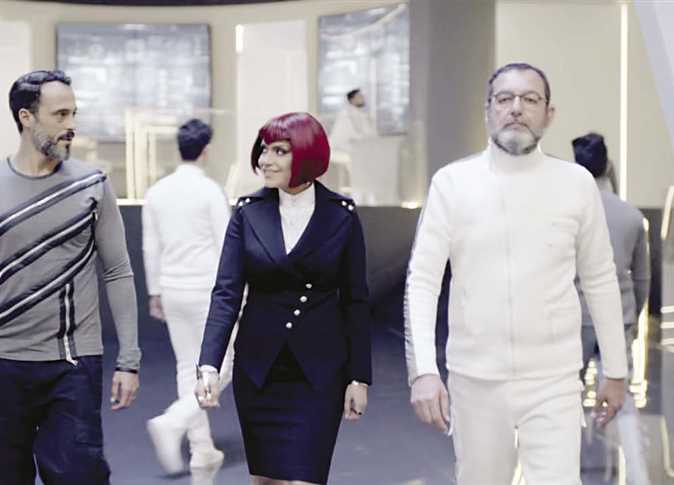
They don’t fit present day modern clothes, if you ask me. The only people who fit the skin tight, westernised, scientific clothes are the physically fit ones, like Youssef El Sherif of course, and the non-Egyptian actors like Eyad Nassar, Bassem Moughnieh and the adorable Nihal Nour (a Syrian-Algerian from Egypt). There’s also body language. Egyptians and many Arabs aren’t comfortable being filmed in public so they always grasp their hands together. You notice this all the time at press conferences for Arab League summit meetings or for businessmen, especially at weddings, and wouldn’t you know that, you see it here aplenty. You also get some actors who try and do modern hand and arm movements, to go along with their modern clothes and hairstyles, but it doesn’t work. Thank heavens Youssef El Sherif was perfect both as the robot and the engineer, more so as the nice guy robot with stiff, measured movements. You can tell he put a lot of thought into that mechanical character and maybe even consulted a mime coach, just like Peter Weller did with Robocop!
Now for the ever controversial topic of ‘originality’. The people who savaged the series, almost from the trailer onwards, charged that it was scissors and paste. Nothing could be further from the truth, I’m glad to say. There are some resemblances with a novel by Mahmoud Abdelreheem, Al-Kayan (The Entity), but you feel that they are drawing from the same whirlpool of ideas, concerns, themes and motifs. In Al-Kayan you have some secret elite group of businessmen and politicians running the world and they are inadvertently serving to put an end to the world on behalf of some mysterious benefactor who turns out not to be human. It was this benefactor who is actually responsible for the information revolution with smart phones and AI and android technology. The mysterious figure also creates an end of the world cult to prepare his followers for the world that he will dominate. This looks much like what you get in the TV series but in actual fact the storylines are completely different. In the novel you have two parallel worlds and a band of brave heroes who try and succeed in staving off disaster, while the millennial cult turns out to be a smokescreen. The point here is that authors draw from similar concerns and anxieties, about evil forces operating behind the scenes and who it is that controls technological advance. (This future world is remarkably similar to the one we live in now, with bureaucratic hurdles towards innovation and bossmen who want to steal your accomplishments while some committee or other sits in on everything you do, say, think and feel)!
The millennial cult in the TV series is some sort of Masonic-Satanic elite group and you also felt that this was making a reference to what’s been happening to Egypt as the society becomes less and less conservative. Hence, the situation with Zain’s wife, thinking about hitching up with another man when her husband’s blood is still warm, so to speak. You also find this in one of the excellent subplots in the series, where the hero is given a diary of a journalist from the year 2020 who first learnt about this cult. There are other novels out, very recent ones in fact, that also deal with the shape of Masonic future world orders, like Osama Al-Tarabulsi’s 2027: Dawn for the Era Whose Ideas Preceded his Era. So again these issues are in the air and lots of writers are drawing from them. This is actually good for a whole other reason, namely, the kind of contribution we as Arabs can make to the corpus of sci-fi. Conspiracy theory SF is quite distinctive of Arabic literature and to date only the Syrians have excelled at it, thanks considerably to Dr. Taleb Omran. Now Egyptians are cashing in on this too, evidenced also by the latest anthology of the Shams Al-Ghad by the Egyptian Society for Science Fiction (ESSF) which is dedicated resistance literature.
Again, originality and cultural authenticity are evident in this brave attempt at Egyptian and Arabic televised science fiction. The only thing strictly speaking unoriginal were the set designs. Some, especially in the Oasis, bear a striking resemblance to The Island (2005), with the white uniforms and the programmable closet. The destroyed buildings and cities also bear some resemblance to the Fist of the North Star animie series. (The hairstyle of Sarah Adel’s character is also reminiscent of the heroine in Ghost in the Shell, if you ask me). But that’s okay, borrowing imagery from elsewhere. That’s what motifs are all about. With time, as more artists and set designers and special effects people and costumes designers get involved in Arabic SF productions, the problem will get sorted out and less and less borrowing will take place. Kids steps, like everything in life, and its’ not like westerners don’t borrow from themselves and even from us on occasion. Three Men and a Baby, the American comedy, was taken from an ultra cute French movie and its even been said that Ridley Scott’s Thelma and Louise was taken from Ahlam Hind Wa Camilya (The Dreams of Hind and Camilya).
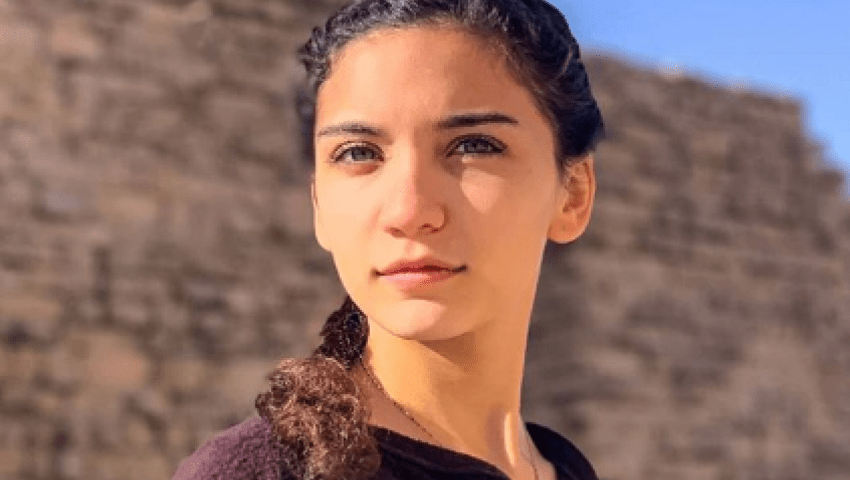
My only remaining qualm is with the belated ending to the series. There’s too many loose ends and the last episode, which was a bit of an anti-climax, didn’t tie them up. In terms of themes however I think I get the point. The very first opening scene in the series had Zain recollecting his father, as a child, when he was giving kids a lesson and beginning with let there be light. In the closing scene here you have Zain encountering one of his students, an orphaned girl who has grown up to be the leader of her people. She learned these skills in part from him and his faith in the future but more so from fending out on the streets, something the younger version of Nihal Nour’s character pretty much tells you in a key and dramatic scene. The idea is that, even with this evil immortal guy planning to take over the world with his monopoly of science and technology, there is hope still, since Zain has survived with his own bastion of knowledge, meaning they have a future still and can start building anew.
So, all in all, Al-Nihaya is a worthy and distinctly Arabic contribution to the worlds of dystopian and post-apocalyptic sci-fi. A seed has been planted and it will grow and grow, and despite the most damnable attempts to stamp out this rose of creativity – if only because of how lacklustre the competition is, domestic… and foreign!!!



